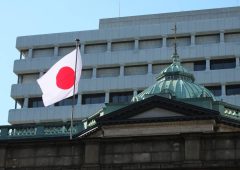UK Court Rejects Craig Wright’s Appeal, Upholding Ruling Against His Bitcoin Authorship Claim
01.12.2024 11:00 1 min. read Kosta Gushterov
The UK Court of Appeal has rejected Craig Wright's bid to challenge a previous ruling in his legal fight against the Crypto Open Patent Alliance (COPA), affirming that he failed to prove he is Satoshi Nakamoto, the pseudonymous creator of Bitcoin.
The decision marks another blow to Wright’s ongoing claims of Bitcoin authorship.
On November 28, the court dismissed Wright’s appeal, ruling that his arguments lacked merit. Lord Justice Arnold stated there was no reasonable basis for an appeal and confirmed that Wright’s evidence did not support his claim to be the author of the Bitcoin whitepaper. Earlier this year, after a 22-day trial, a judge had concluded that Wright could not substantiate his assertions of authorship, with expert testimony undermining his case.
Despite Wright’s claims of judicial bias and improper handling of evidence, the court rejected these accusations. The ruling emphasized that the trial judge had ensured a fair process, dismissing Wright’s complaints as disagreements with the legal reasoning rather than valid grounds for appeal.
The appeal also failed to convince the court that expert evidence was mishandled. Wright’s own experts often agreed with COPA’s experts on crucial points, further weakening his case. In addition, Wright had made strategic decisions not to call key witnesses or cross-examine others, a move that hindered his defense. The court noted that Wright’s insistence on being treated as an expert was unjustified, as he was already the main witness in his case.
-
1
Market Odds of a U.S. Recession in 2025 Drop in Half Since May
05.07.2025 18:30 2 min. read -
2
What Brian Armstrong’s New Stats Reveal About Institutional Crypto Growth
29.06.2025 15:00 2 min. read -
3
Vitalik Buterin Warns Digital ID Projects Could End Pseudonymity
29.06.2025 9:00 2 min. read -
4
Donald Trump Signs “One Big Beautiful Bill”: How It Can Reshape the Crypto Market
05.07.2025 9:56 2 min. read -
5
Toncoin Launches UAE Golden Visa Program Through $100,000 Staking Offer
06.07.2025 12:04 2 min. read
BitGo Files Confidentially for IPO With SEC
BitGo Holdings, Inc. has taken a key step toward becoming a publicly traded company by confidentially submitting a draft registration statement on Form S-1 to the U.S. Securities and Exchange Commission (SEC).
Crypto Greed Index Stays Elevated for 9 Days — What it Signals Next?
The crypto market continues to flash bullish signals, with the CMC Fear & Greed Index holding at 67 despite a minor pullback from yesterday.
U.S. Public Pension Giant Boosts Palantir and Strategy Holdings in Q2
According to a report by Barron’s, the Ohio Public Employees Retirement System (OPERS) made notable adjustments to its portfolio in Q2 2025, significantly increasing exposure to Palantir and Strategy while cutting back on Lyft.
Key Crypto Events to Watch in the Next Months
As crypto markets gain momentum heading into the second half of 2025, a series of pivotal regulatory and macroeconomic events are poised to shape sentiment, liquidity, and price action across the space.
-
1
Market Odds of a U.S. Recession in 2025 Drop in Half Since May
05.07.2025 18:30 2 min. read -
2
What Brian Armstrong’s New Stats Reveal About Institutional Crypto Growth
29.06.2025 15:00 2 min. read -
3
Vitalik Buterin Warns Digital ID Projects Could End Pseudonymity
29.06.2025 9:00 2 min. read -
4
Donald Trump Signs “One Big Beautiful Bill”: How It Can Reshape the Crypto Market
05.07.2025 9:56 2 min. read -
5
Toncoin Launches UAE Golden Visa Program Through $100,000 Staking Offer
06.07.2025 12:04 2 min. read


